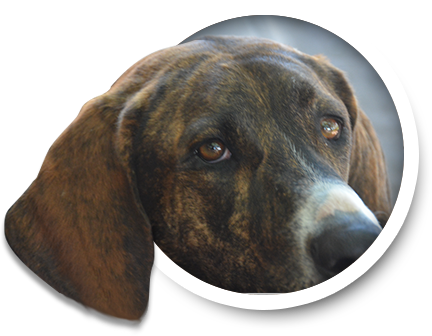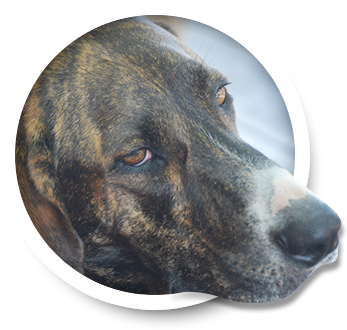Posted on 4/27/2020


Duke here and what a beautiful day in my dog-shelter in place. I would love to go for a car ride but I know now is not the time. But one day we will be taking those road trips and you better make sure your vehicle is ready. So let's bark about it.
Road trip, anyone? Nothing spoils a great vacation faster than ending up stranded on the side of the road or spending a week in a rundown motel while our vehicle sits in the shop. Long days on the road can bring out the worst in your vehicle, so before you leave, prepare it for the journey by getting a trip inspection at Allied Auto Works in Los Altos. After all, you wouldn't travel without clean socks, why ask your vehicle to travel with a load of dirty oil?
The first step in a trip inspection at Allied Auto Works is to look at your travel plans. What kinds of roads will you be driving on? Will you be in the CA backcountry or on the freeway? Will you be crossing mountains? Off-roading? What will the weather be like? How far away from Los Altos will you be traveling? How much are you hauling? Will you be towing a trailer or lugging a rooftop carrier? Will you encounter dust, mud, snow, or sea salt? All of these questions can help determine which services are most needed. And don't hesitate to ask your Allied Auto Works service advisor. He can give you good auto advice on what trip conditions are hardest on what systems of your vehicle and what kinds of services it realistically needs. Start with the tires and check them for tread wear and proper inflation. Replace or rotate them as needed. If you need to change them out for winter tires, then do so.
Then look at your shocks or struts for wear. Replace them if needed. You'll want that extra comfort on your trip. Be sure to check your alignment as well. Steering a vehicle that is out of alignment is tiring, and dangerous. Don't overlook your brakes. With extra passengers and baggage, your brakes are going to get a workout. You want them in top condition.
In addition, inspect belts and hoses. If any of them are close to wearing out, have them replaced before your long trip does them in.
Change your engine air filter if it needs it, or if it's close to needing it. Your car's air filter processes 12,000 times as much air as the amount of fuel it burns. A clean air filter will protect electronic sensors that affect how your engine runs.
Get an oil change at Allied Auto Works in Los Altos if it's coming due. Make it a full-service oil change while you're at it. That way, all of your fluids will get checked and topped off. Change any dirty or old fluids. Los Altos drivers don't want to overstress their cooling systems or transmissions with dirty fluid during a long trip.
Does your vehicle smell? Check the cabin air filter. The bad smell could also indicate an exhaust leak, which can be fatal on a long trip. So don't ignore bad odors; check them out.
If your air conditioning hasn't been up to snuff, then give it an overhaul. You want your vacation to be relaxed and pleasant, and that means keeping the passenger compartment comfortable.
And be sure to check your wiper blades and your headlamps. You may find yourself driving in unfamiliar territory at night after a long day. You'll want to be able to see as much as possible.
Of course, almost everything listed here is just part of preventive maintenance for smart driving. If you keep up with your vehicle care on a regular basis, a trip inspection will be a breeze at Allied Auto Works.
Taking care of your vehicle before you leave for a road trip will pay you back in safety, peace of mind, improved comfort, and better fuel economy. It will also help your vacation go as planned by keeping you on the road and headed for that next great adventure.
Just don't forget to pack your socks and might as well take those gloves and face masks too.
Stay Safe,
Duke

Allied Auto Works
2073 Grant Road
Los Altos, CA 94024
650.968.7227
http://www.alliedautoworks.com
Posted on 4/22/2020

Did you know Dogs see a lot better than humans do at night? Dogs have many adaptations for low-light vision. Hi, Cayenne here, and today I am going to bark to you about how to improve your night vision while driving. It should come from the expert, which is me since dogs do see better than our humans.
Night driving in Los Altos is not as safe as daylight driving as evidenced by the increased accident rate at night. Much of that is simply because it's dark outside.
Visibility is important to safe driving. Ninety percent of our driving decisions are based on what we see. And at night, we just can't see as much as we can during the day. In fact, if you have 20/20 vision during the day, your night vision is only 20/50. To translate, that means that an object you can clearly see 50 feet away during daylight, only becomes visible to you at 20 feet at night.
Reaction time is also related to visibility. Los Alto's motorists don't react to a situation until they see it. So at night, we're reacting to situations later just because it takes longer to see them. But we don't have to stop driving at night to stay safe. We just need to practice some preventive maintenance and vehicle care that will maximize our night vision.
The most crucial item that helps us see while driving at night is, of course, our headlamps. Los Altos drivers should ensure that their headlamps are as bright as they can be. Headlamps dim over time, but they do it so gradually that it's difficult to notice. Because of this, experts recommend replacing headlamps once a year.
That's good auto advice for Los Altos drivers, but it doesn't apply to all headlamps. Some vehicles use HID, or high-intensity discharge, headlamps. These are bright headlamps that are designed to last for the entire life of a vehicle. Depending on your vehicle, you may be able to upgrade to HID headlamps. Consult with your friendly service advisor at Allied Auto Works to learn your options.
Most vehicles use standard or halogen headlamps. If you use standard headlamps, you might want to upgrade to halogen, which offers a brighter headlight. Halogen headlamps come in a variety of grades, so evaluate your options the next time you replace your headlamps and upgrade if you want a better light.
It won't do much good to upgrade or replace your headlamps, however, if your headlight lens is dirty or yellowed. Studies have shown that about 90% of the vehicles on the road have impaired headlights due to dirty or yellowed headlight covers. You should get into the habit of washing your headlights every time you gas up. Simply grab the window washer squeegee, run it over your windows, then swish it across your covers. No cost involved at all.
Plastic headlamp lenses yellow or become hazy over time. If your lenses have this problem, they can be restored with a special polishing process. You may be able to get this done at your Los Altos service center. If not, they should be able to tell you where you can.
Now, what good is a quality headlamp if you can't see through your windshield? Your windshield needs to be clean and streak-free if you plan on driving at night in Los Altos. You should also keep your windshield washer fluid replenished and your wipers in good condition.
Wiper blades should actually be replaced twice a year. The changing of the seasons at spring and fall, or Daylight Saving Time, can be a good reminder to do this. And while you're at it, fall is the perfect time to replace your headlamps. Those long winter nights add up to a lot more night driving for people in Los Altos.
Stay alert. Stay awake. And keep those headlamps burning bright and keep 6ft distance between you and the next driver,
CAYENNE

Allied Auto Works
2073 Grant Road
Los Altos, CA 94024
650.968.7227
http://www.alliedautoworks.com
Posted on 4/13/2020


Duke here in my comfy shelter in place, my dog bed. Today we're are going to head in the right direction and bark about power steering.
Power steering is standard on nearly every vehicle in the South Bay these days. Now there are some exotic, new types of power steering systems, but for the most part, the general setup is a pump that's driven by a belt powered by the engine.
Contact the automotive professionals at Allied Auto Works in Los Altos for questions about your power steering.
The pump generates power that assists drivers as they steer their vehicle around Los Altos, CA. Power steering systems use hoses to move pressurized fluid back and forth. These hoses can develop leaks so it's a good idea to have Allied Auto Works inspect them at every oil change.
A check of the power steering fluid level is on the list for every full-service oil change at Allied Auto Works because low fluid can damage the power steering pump. And the fluid needs to be compatible with the hoses and seals, so it's important to use the correct type – just ask your service advisors Matt and Travis at Allied Auto Works.
In addition to providing a boost, the fluid cleans, cools and lubricates the power steering system. Over time, the lubricants and detergents diminish so Los Altos drivers need to replace their old fluid with clean, fresh fluid periodically.
Excess moisture can collect in the power steering fluid as well. That can lead to rust and corrosion as well as reduce the effectiveness of the fluid. Many outline power steering service intervals in the owner's manual. Unfortunately, this service is sometimes left off the maintenance schedule. For Los Altos drivers who are not sure, every two years is a good rule of thumb.
At Allied Auto Works, we use a detergent to clean the system, flush out the old fluid and replace it with new fluid.
Now, if you are experiencing high steering effort, erratic power assist or loud whining coming from the pump, you may have a power steering problem. Another sign is having to frequently top off the fluid.
Holding the steering wheel to the far right or left for more than a few seconds at a time can wear your pump out quickly. We want you to be sure to service your power steering system regularly at your service center, or Allied Auto Works in Los Altos, to keep you headed in the right direction.
Keep on truckin'
Duke

Allied Auto Works
2073 Grant Road
Los Altos, CA 94024
650.968.7227
http://www.alliedautoworks.com
Posted on 4/5/2020


Cayenne here with another day with my shelter in place. Most of my Allied Auto Works team is working out on the front lines right now taking care of what is essential for the community and emergency infrastructure. I am fortunate that I can do my educational automotive blog right from home to help keep your informed during our COV-19 crisis. Today I will bark to you about how your check engine light works. So let's get barkin'!
Have you ever had an experience like this in Los Altos or in anywhere in CA? You drive through the one of those automatic car washes and when you get to the end, where the dryer is blowing, your Check Engine light starts flashing!
You fear the worst, but within a block or two, the light stops flashing but stays on. By the next day, the light is off.
You wonder; "What was going on?" Well, it's actually a good lesson in how the Check Engine light works.
Your air intake system has a sensor that measures how much air is coming through it. When you went under the high-speed dryer, all that air was blasting past the sensor. Your engine computer was saying, there shouldn't be that much air when the engine is just idling. Something's wrong. Whatever's wrong could cause some serious engine damage.
Warning, warning! It flashes the Check Engine light to alert you to take immediate action.
It stopped flashing because once you were out from under the dryer, the airflow returned to normal. Now the engine control computer says the danger is past, but I'm still concerned, I'll keep this light on for now.
Then the Check Engine light goes off in a day or two.
The condition never did recur, so the computer says whatever it was, it's gone now. The danger is past, I'll turn that light off.
Now a flashing Check Engine light is serious. You need to get it into Allied Auto Works as soon as possible. But if it stops flashing you can wait a few days, so you have time to see if the problem will clear itself or if you need to get it checked. How does the computer know when to clear itself?
Think of it this way. The engine control computer is the brain that can make adjustments to manage the engine. Things like altering the air-to-fuel mix, spark advance and so on. The computer relies on a series of sensors to get the information it needs to make decisions on what to do.
The computer knows what readings are in a normal range for various conditions. Get out of range, and it logs a trouble code and lights up the Check Engine warning.
The computer will then try to make adjustments if it can. If the computer can't compensate for the problem, the Check Engine light stays on.
The computer logs a trouble code. Some people think the code will tell the technician exactly what's wrong.
Actually, the code will tell the technician what sensor reading is out of parameters. It can't really tell him why, because there could be any number of causes.
Let's say you're feeling hot. You get your heat sensor out – a thermometer – put it under our tongue and in a minute or two, you learn that you have a fever of 104 degrees F (40 degrees C).
You know your symptom – a fever – but you don't know what's causing it. Is it the flu, a sinus infection or appendicitis?
You need more information than just that one sensor reading. But it does give you a place to start and narrows down the possible problems.
There are reports on the internet telling you that you can just go down to an auto parts store and get them to read your trouble code or buy a cheap scan tool to do it yourself.
There are two problems with that. First, the computer stores some trouble codes in short term memory and some in permanent memory. Each manufacturer's computer stores generic trouble codes, but they also store codes that are specific to their brand.
A cheap, generic scan tool, like you can buy online or that the auto parts store uses, doesn't have the ability to retrieve long-term storage or manufacturer specific codes. Your favorite auto repair center, Allied Auto Works has spent a lot of money on high-end scan tools and software to do a deep retrieval of information from your engine control computer.
The second problem is that once you've got the information, do you know what to do with it? For example, a very common trouble code comes up when the reading on the oxygen sensor is out of whack.
So the common solution is for the auto parts store to sell you a new oxygen sensor — which is not cheap — and send you off on your way. Now your oxygen sensor may indeed have been bad and needed replacing. But the error code could have come from any of a dozen of other problems.
How do you know the right solution? Back to the fever analogy, do you need surgery or an aspirin? Leave it to the pros at Allied Auto Works. Give us a call and let us help you resolve your check engine light issue.
Remember to thank the Allied Auto Works Team for being there for you during this crisis, we will get through it. Stay Safe and Healthy!
Cayenne 
Allied Auto Works
2073 Grant Road
Los Altos, CA 94024
650.968.7227
http://www.alliedautoworks.com